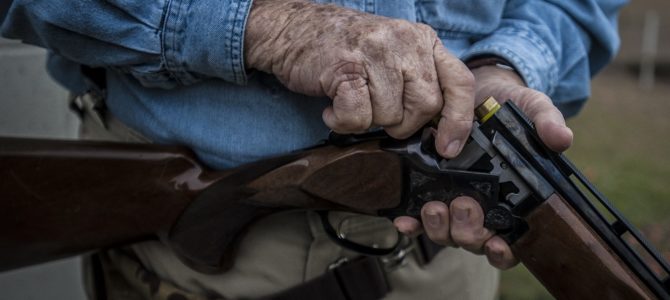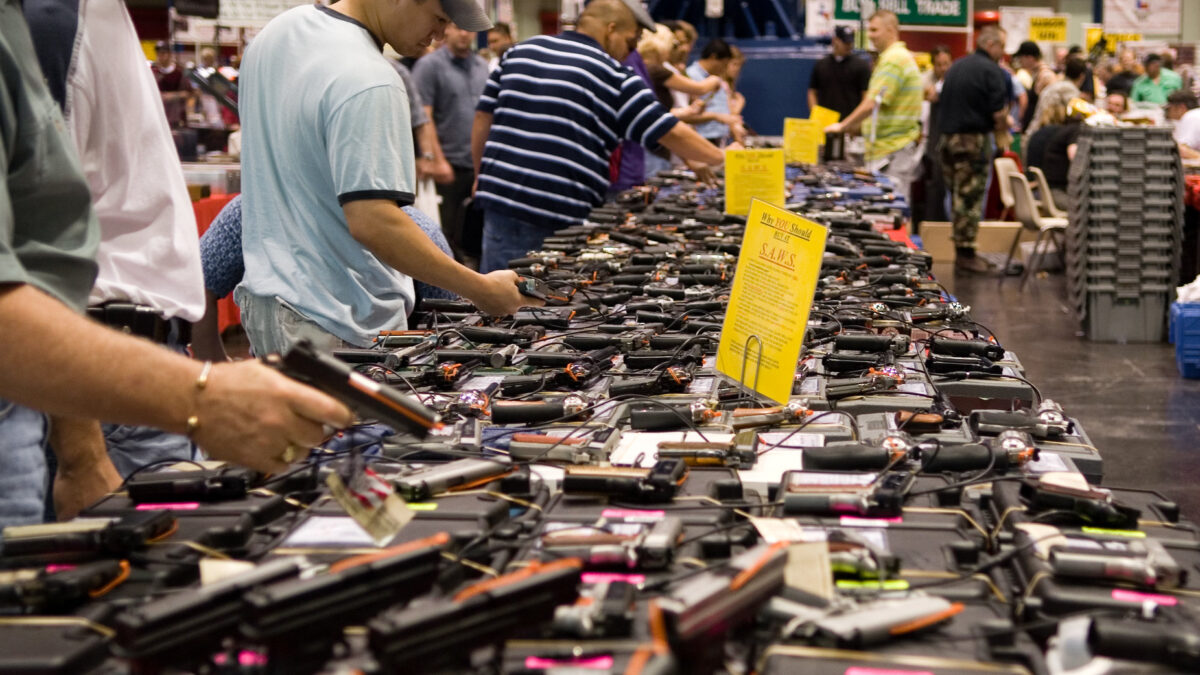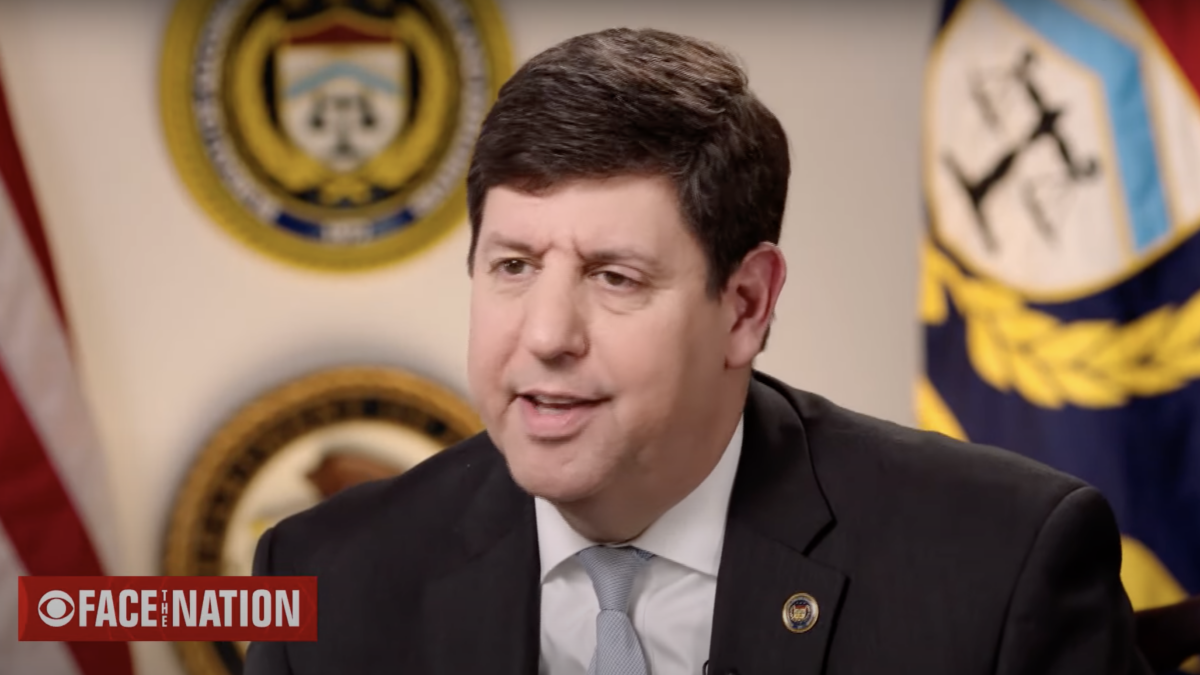
On September 18, Attorney General William Barr, who in 1991 testified to the Senate Judiciary Committee that he supported banning “assault weapons” and imposing a waiting period on purchases of handguns, circulated an “Idea for New Unlicensed-Commercial-Sale Background Checks” on Capitol Hill.
Federally-licensed firearm dealers—gun stores, department stores that sell guns, etc.—are already required to conduct background checks on their customers. By current appearances, Barr’s “idea” proposes to expand the check requirement to “advertised commercial sales” by non-dealers and all sales by non-dealers at gun shows, but not to sales arranged informally, at locations other than gun shows, between people who know one another.
By comparison, H.R. 8, by Rep. Mike Thompson (D-Calif.), proposes to require a background check on transfers of firearms between non-dealers more generally, including merely handing a firearm to someone in many circumstances, including some circumstances related to self-defense. It also prohibits young adults from acquiring handguns and contains many other onerous provisions.
President Trump may reject Barr’s “idea” because it would move Democrats closer to their goal of transforming the background check system into a gun registry, while Democrats may reject it because it wouldn’t move them there fast enough. In any case, instead of expanding the background check system, we should be working to get to the point at which the federal and state governments will be less certain, not more certain, who owns guns and which guns they own, thus less able to confiscate them.
As long as there is a background check system for gun purchases, Democrats will try to transform it into a firearm registry that can be used to enforce gun confiscation, which, in the case of semi-automatic rifles like the ubiquitous AR-15, five of the 10 leading Democrat presidential candidates publicly advocate. In fact, Democrats have been trying to transform the background check system into a gun registry since before the system was established.
The Journey of a Thousand Miles Begins with One Step
If the last sentence of the previous paragraph is confusing, some background is in order. The first civilian disarmament activist groups—other than the Democratic Party, most of the major TV news networks, news magazines such as Time and Newsweek, and newspapers such as the New York Times and Washington Post—were formed in the 1970s, hoping to capitalize on the momentum they believed was generated by imposition of the Gun Control Act of 1968.
At first, they and their politician and media allies campaigned for a ban on handguns. In 1976, one of the groups, the National Council to Control Handguns (NCCH), said, “[t]he first problem is to slow down the increasing number of handguns being produced and sold in this country. The second problem is to get handguns registered. And the final problem is to make the possession of all handguns and all handgun ammunition . . . totally illegal.”
Since Congress and the states refused to ban handguns, the disarmament activists resorted to a “Plan B” that focused on the first part of their three-part plan: slowing down handgun sales. Thus in 1979, Sen. Edward Kennedy (D-Mass.) and Rep. Peter Rodino (D-N.J.) began introducing legislation proposing that handgun buyers be required to obtain a purchase permit from the police, be subject to a 21-day waiting period to purchase a handgun, and be limited to two handgun purchases per year.
Congress did not go for “Plan B” either, so in the late 1980s the activists went to “Plan C,” which called for “Plan B’s” waiting period, scaled back from 21 days to a week. In 1988, Rep. Bill McCollum (R-Fla.) counter-proposed essentially the National Instant Criminal Background Check System (NICS) we have today. Because the system would allow a person with a clean record to pass a computerized check and buy a gun within a few minutes, the disarmament activists opposed it.
The debate between the waiting period and the instant check alternative ended up with the imposition of the Brady Act in 1993. The law imposed a waiting period of up to five business days on sales of handguns by dealers, but included an amendment, opposed by disarmament activists and many congressional Democrats, requiring that five years down the road, the waiting period requirement would cease in favor of NICS, which would screen not only purchasers of handguns, but purchasers of rifles and shotguns as well.
The Phony ‘Gun Show Loophole’
NICS went into operation at the end of November 1998. Earlier that month, however, President Bill Clinton complained that the law didn’t require background checks on people who buy firearms from non-dealers at gun shows, calling it a “loophole” in federal law. There was and is no “loophole,” because federal laws apply at shows just like they do anywhere else. Also, state prison inmate surveys by the Bureau of Justice Statistics found that the vast majority of inmates in prison for gun crimes acquired guns through theft, black market purchases, or acquaintances, while less than 1 percent got them from shows.
Furthermore, illegal firearm trafficking data accumulated by the Bureau of Alcohol, Tobacco, Firearms and Explosives indicated that a large percentage of the acquaintances were straw purchasers, people who can pass a background check, who buy firearms for people who cannot pass a check. Contrary to the activists’ suggestion that criminals avoid the check by buying guns from non-licensed gun owners, the Bureau said “[t]he most frequent type of trafficking channel identified in ATF investigations is straw purchasing from federally-licensed firearms dealers. Nearly 50 percent . . . .”
Clinton was trying to help disarmament activists move the background check system one step closer to the second goal of their three-step plan: getting handguns (now all firearms) registered. Congress didn’t agree there was a “gun show loophole,” so in 2009 Sen. Frank Lautenberg (D-N.J.) introduced legislation to allow the FBI to retain records on people who pass background checks to buy guns anywhere, not just at gun shows. Rep. Barbara Lee (D-Calif.) introduced similar legislation in 2013.
If those bills had become law, all that would have been required—and all that is required today—to transform the system into a registry would be for all gun transfers to be subject to a background check and for the records of those checks to be kept by the FBI and include the make, model, and serial number of the firearm for which the check was conducted.
There are other potential problems with Barr’s “idea.” For example, it would impose a record-keeping requirement on people who are not firearm dealers. The Gun Control Act imposed such requirements on only dealers, manufacturers, and importers. But any additional problems with Barr’s “idea” are beside the point. Any expansion of the background check system is movement in the wrong direction. Democrats’ ultimate goal is the prohibition of private gun ownership and any step in the direction of gun registration—however small—would get them closer to the gun confiscation regime they would like to impose.









